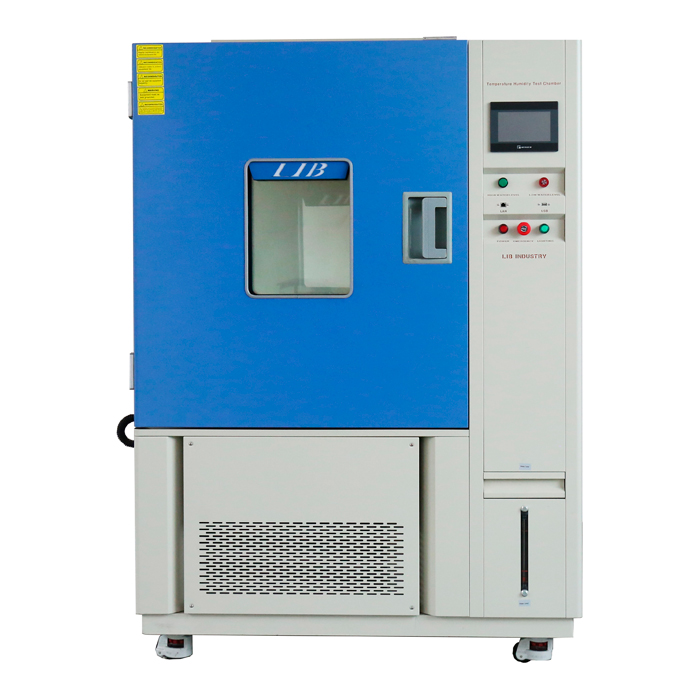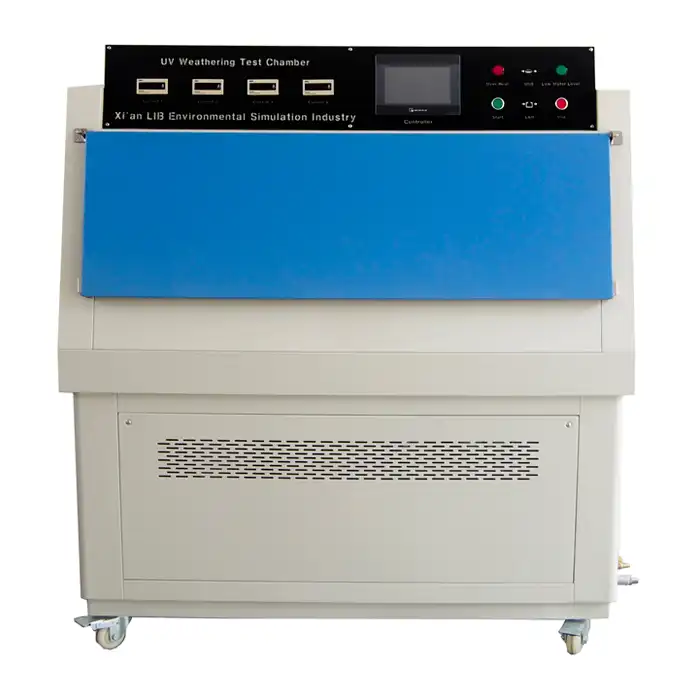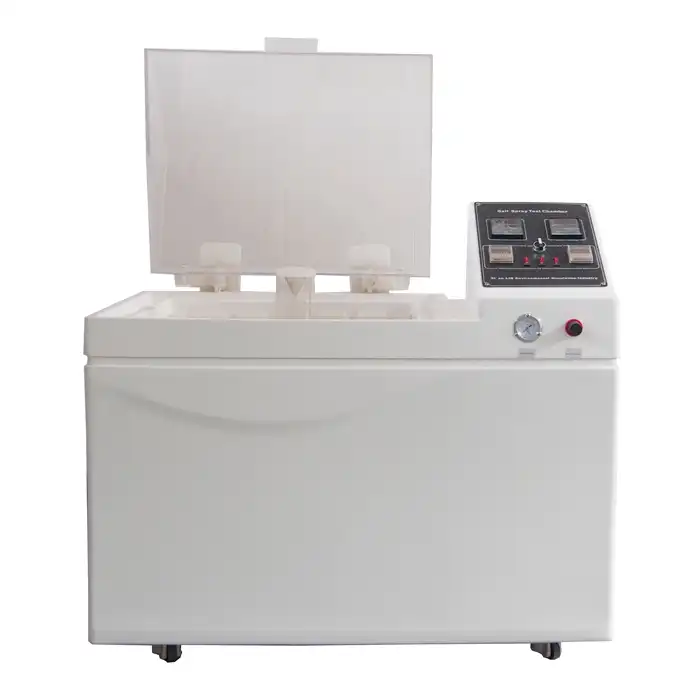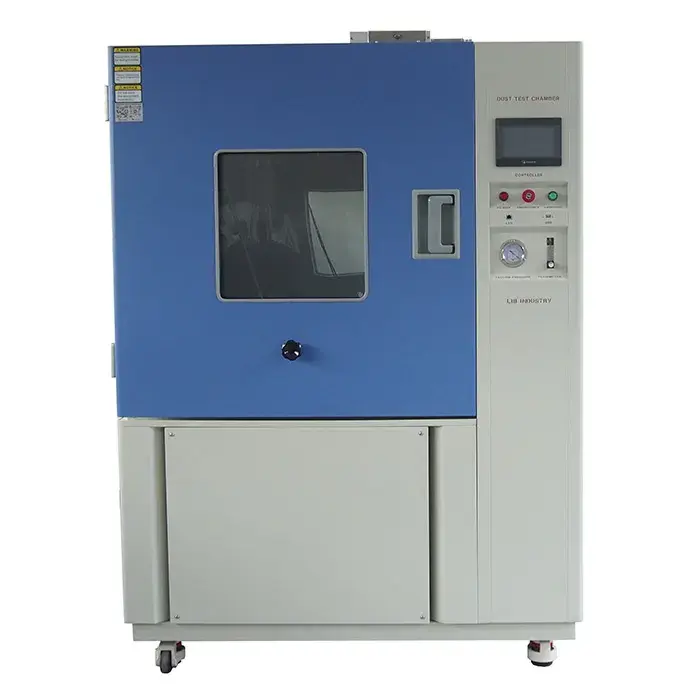Contact Us
 +8618700875368
+8618700875368
No.6 Zhangba First Street, High-Tech Area, Xi'an City, Shaanxi Province, P.R. China 710065
How Does Salt Spray Test Equipment Facilitate Accurate Corrosion Evaluation?
2024-04-30 18:17:03
As an industry professional deeply involved in materials testing, I find salt spray test equipment to be an invaluable tool for evaluating the corrosion resistance of various materials. In this comprehensive article, I will delve into the intricacies of salt spray equipment, its operational mechanisms, its significance in material resilience assessment, methods to select the right equipment, and essential maintenance practices to ensure reliable test results.
1. What Constitutes Salt Spray Test Equipment, and How Does It Operate?
As an master in materials science and erosion assessment, I'm frequently inquired around the adequacy and significance of salt splash device in surveying the erosion resistance of materials. In this comprehensive direct, I'll dive into the essentials of salt shower device, its part in reenacting destructive situations, the centrality of erosion testing, and how to guarantee exact and dependable results.
1. What Is a Salt Splash Device, and How Does It Reenact Destructive Environments?
Salt shower device is a standardized testing gadget utilized to mimic and quicken the destructive impacts that materials may encounter in real-world situations. It comprises a chamber where a saline arrangement, regularly sodium chloride (NaCl), is atomized and splashed onto test examples. This makes a destructive environment comparable to that found in coastal or mechanical settings, where salt-laden discuss can cause quickened corrosion.
The introduction of salt shower in the salt splash device starts and quickens erosion forms on the test examples, permitting analysts and engineers to evaluate the materials' resistance to erosion over a moderately brief period compared to common presentation conditions.
2. Why Is Erosion Testing with Salt Shower Device Basic for Surveying Fabric Resilience?
Corrosion postures a noteworthy danger to the astuteness and life span of different materials, counting metals and coatings. Conducting erosion testing with a salt splash device is fundamental for a few reasons.
Quality Affirmation and Control: Normal utilize of salt shower testing as portion of quality control methods guarantees that items meet the required solidness guidelines. This not as it were upgrades brand notoriety, but moreover increments client believe and fulfillment by conveying items that perform as anticipated in destructive environments.
Material and Coating Improvement: Salt shower testing is important in the investigate and improvement stage, where modern materials and defensive coatings are assessed for their erosion resistance. This encourages the development of more strong materials and successful coatings, driving to longer-lasting products.
Risk Administration: By recognizing potential erosion issues early in the item advancement cycle, companies can oversee, and moderate dangers related with item disappointments. This proactive approach makes a difference in defending against legitimate liabilities and the potential negative effect on brand picture due to flawed products.
Environmental Recreation: Salt splash test gear can mimic different destructive situations, from marine to mechanical environments, giving bits of knowledge into how items will perform in particular conditions. This focused on testing is significant for items planned to utilize in cruel natural conditions.
Versatility: The gear can be utilized to test a wide extent of materials and items, from metals and combinations to plastics and coated surfaces. This flexibility makes it an important instrument over distinctive divisions, counting car, aviation, hardware, and marine businesses.
3. How Can You Determine the Right Salt Spray Test Equipment for Your Corrosion Testing Requirements?
Selecting the appropriate salt spray test equipment involves considering factors such as test standards, chamber size, automation features, and budget constraints. Understanding the specific needs of your corrosion testing requirements is essential for choosing equipment that aligns with your objectives and ensures accurate and repeatable results.
4. What Maintenance Practices Are Key for Ensuring Consistent and Reliable Corrosion Test Results with Salt Spray Equipment?
To maintain the effectiveness and reliability of salt spray equipment, routine maintenance is paramount. This includes regular cleaning of the chamber and spray nozzles, calibration of control systems, and inspection of components for wear and tear. Additionally, adherence to manufacturer guidelines and periodic servicing by qualified technicians can help identify and address potential issues before they impact test results.
Application:
Car Industry
Testing the erosion resistance of vehicle components, counting body boards, undercarriage parts, and other metal parts uncovered to street salts and damp conditions.
Evaluating the adequacy of rust-proof coatings and medicines connected to vehicles.
Aerospace Industry
Assessing the solidness of airplane components and structures that are uncovered to destructive situations, counting saline discuss at tall elevations or marine conditions for maritime aircraft.
Testing the defensive coatings utilized on aviation materials to guarantee they can withstand long-term introduction to unforgiving environments.
Metal Industry
Evaluating the erosion resistance of metals and amalgams utilized in development, marine applications, and framework ventures to guarantee their life span and basic integrity.
Testing the adequacy of anti-corrosive medicines and coatings connected to metal products.
Electronics Industry
Determining the erosion resistance of electronic components and printed circuit sheets (PCBs) that may be uncovered to muggy, salty discuss, especially in marine or coastal environments.
Ensuring that electronic gadgets can withstand presentation to destructive situations without debasement of functionality.
Coatings and Defensive Finishes
Assessing the execution of paint frameworks, galvanic coatings, and other defensive wraps up on different substrates to guarantee they give satisfactory security against corrosion.
Evaluating unused details of anti-corrosive paints and coatings for mechanical, car, and marine applications.
Construction and Building Materials
Testing the erosion resistance of latches, material materials, and other metal components utilized in development to guarantee they can withstand natural exposure.
Evaluating the execution of defensive coatings utilized on open air structures and installations to anticipate rust and corrosion.
Marine Industry
Assessing the solidness of materials and coatings utilized on ships, seaward stages, and other marine hardware to guarantee they can stand up to saltwater corrosion.
Testing the adequacy of antifouling and anti-corrosive coatings connected to bodies and other submerged parts.
Research and Development
Facilitating the development of new materials, coatings, and treatments with improved corrosion resistance for use across various industries.
Supporting academic and industrial research into corrosion mechanisms and prevention strategies.
Conclusion:
In conclusion, salt spray test equipment serves as a cornerstone in the evaluation of material corrosion resistance, offering a controlled environment for accelerated testing. By understanding its components, operational principles, significance in material assessment, selection criteria, and maintenance practices, professionals can leverage this technology effectively to ensure the durability and reliability of materials in diverse applications.
LIB Industry concentrates on providing the Turn-key solution for environmental testing, encompassing research, design, production, commissioning, delivery, installation, and training. We offer comprehensive products and services tailored to meet our customers' requirements. For further information on salt spray test equipment, please feel free to contact us at: info@libtestchamber.com.
1. ASTM B117-19, Standard Practice for Operating Salt Spray (Fog) Apparatus.
2. ISO 9227:2017, Corrosion tests in artificial atmospheres - Salt spray tests.
3. V. S. Raja, "Corrosion Testing Techniques," Materials Performance, vol. 49, no. 5, pp. 52-55, May 2010.
4. M. G. Fontana and N. D. Greene, Corrosion Engineering, 3rd ed. New York: McGraw-Hill, 2018.
Send us a message
Please Leave your Message Here! We Will Send Detail Techincal Brochure and Quotation to you!








.webp)